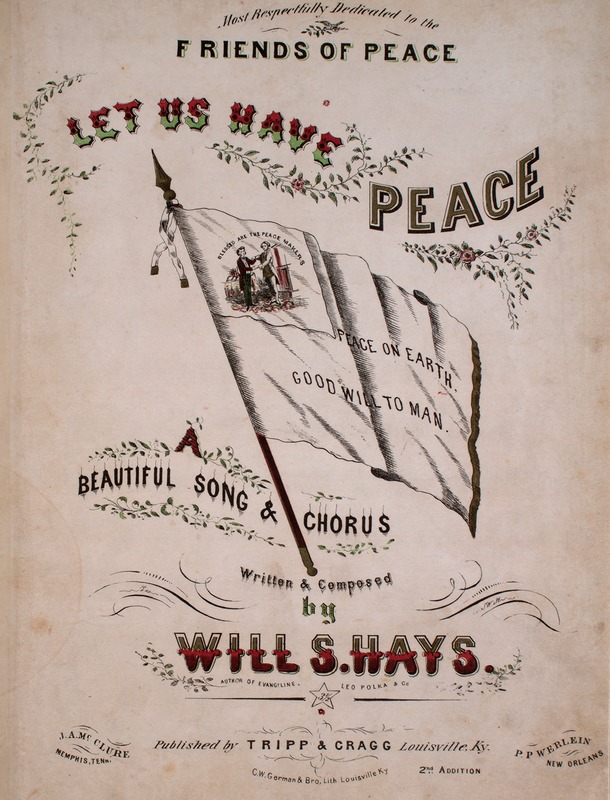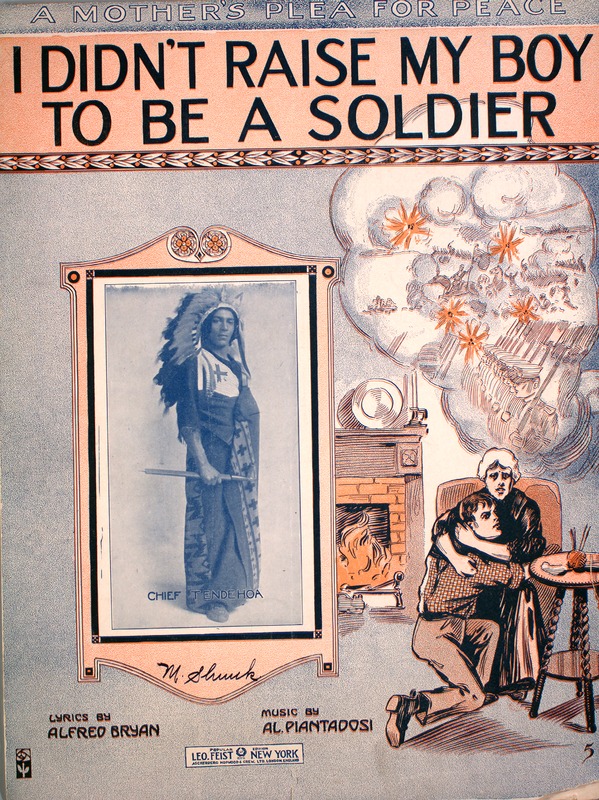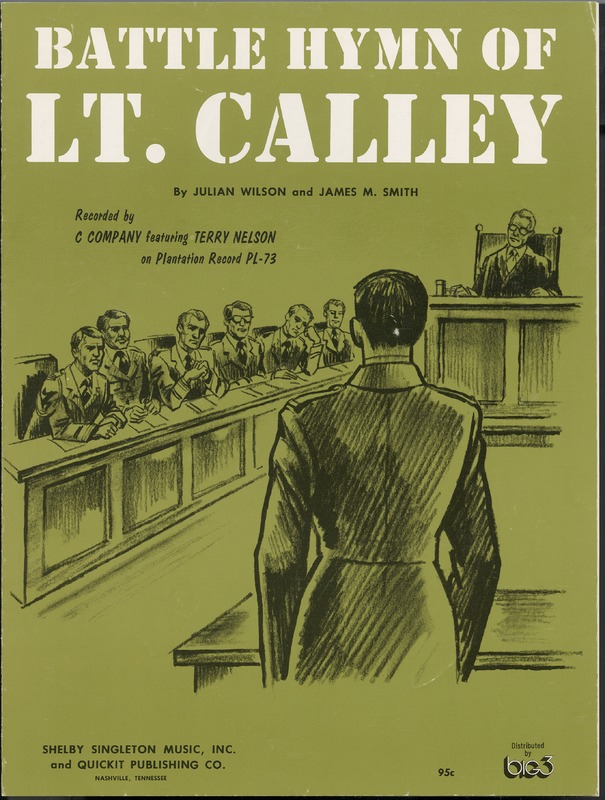Anti-War
The collection contains a large number of songs about wars, including the Civil War (1400 songs) and World War I (574). The songs below include calls for peace and defenses of soldiers.
This song from the Civil War was published in Louisville, KY in 1861-- the same year the war started. There were far fewer songs published in the South due to lack of resources, but the Levy collection contains about 400 of them. Many songs from the South were also published anonymously for unknown reasons, but this one comes from well-known composer William Shakespeare Hayes, who was born in Kentucky and wrote over 350 songs in his career.
The cover is filled with peaceful imagery-- the song is dedicated "most respectfully to the friends of peace," and shows an early Confederate flag with the words "Peace on earth, goodwill to man." There is also an image of two brothers shaking hands.
The text of the song is also clearly anti-war, saying "America, beloved land, once beautiful and bright, oh why should friendship turn to hate, oh why should brothers fight?" One particularly interesting lyric takes a subtle turn from the positive lyrics: "Tis worse than vain for you to try to subjugate the South." This is consistent with Confederate rhetoric around the Northern "invasion" of the South-- it also ignores the fact that the Civil War was being fought over the institution of slavery. In fact, slavery is not mentioned in the song at all.
The last line of the chorus is "May our country live again in happiness and peace,"-- the composer is clearly seeking a return to the status quo. Of course, we know that not all living in Kentucky 1861 were experiencing the happiness and peace Hayes is referring to.
How is this rhetoric similar to modern political slogans, such as "Make America Great Again"?
This song was published in New York in 1915, the second year of the first World War. The cover was printed with a blank section so a local celebrity could be inserted-- in this case, "Chief Tendehoa." Conflicting information exists on the identify of this performer-- one source claims this is a white person in Native American clothing. However, period newspaper clippings claim he was a Sioux performer in vaudeville shows.
The imagery on the cover is quite emotional-- we can see a mother and son sitting in front of the fireplace, where the mother appers to have put down her knitting to embrace her son. Both of them are looking directly at us with fear and anger in their eyes. Hovering above them is a cloud of war, with bombs and smoke--- the mother even appears to be positioned so that she's protecting her son from the war.
The song was very popular in its time, reaching #1 in the charts in 1915. It also faced high-level criticism-- Theodore Roosevelt remarked that "Foolish people who applaud a song entitled 'I didn't raise my boy to be a soldier,' are just the people who would also in their hearts applaud a song entitled 'I didn't raise my girl to be a mother." To Roosevelt, it was just as obvious that a boy will become a soldier as a girl will be a mother. The song was parodied often, with people changing the lyrics to "I didn't raise my boy to be a coward," and "I didn't raise my dog to be a sausage."
The text has a number of calls for peace-- one of the most powerful is, "There'd be no war today if mothers all would say, ' I didn't raise my boy to be a soldier.'" A recording can be found here.
This song, from the Vietnam War, was published in Nashville in 1971. It's one of the most recently published songs in the Levy collection. The song is a reference to the My Lai Massacre, in which US soldiers killed between 300 and 500 unarmed Vietnamese civilians. 26 soldiers were charged with criminal offenses, but only Lt. Calley was convicted-- he was found guilty of murdering 22 villagers and received a life sentence, serving only 3.5 years under house arrest. This was composed in support of Calley, portraying him instead as a patriot that was just following orders.
The melody for the song is a well-known patriotic song, Battle Hymn of the Republic. It was very common for composers to use and re-use melodies and familiar hymns with new text (especially patriotic melodies). By using this melody, the composer immediately evokes feelings of nostalgia and patriotism. It starts with a humble-sounding banjo and military-like snare drum. The song reached #49 on Hot Country Songs, selling over 1 million copies in 4 days-- it currently appears on at least five albums on Spotify.
The text of the song mostly mitigates Calley's actions-- portraying him as a little boy who just wanted to serve his country, never letting go of the flag. The last verse begs, "When all the wars are over and the battle's finally won, count me only as a soldier who never left his gun."
A recording can be found here.


